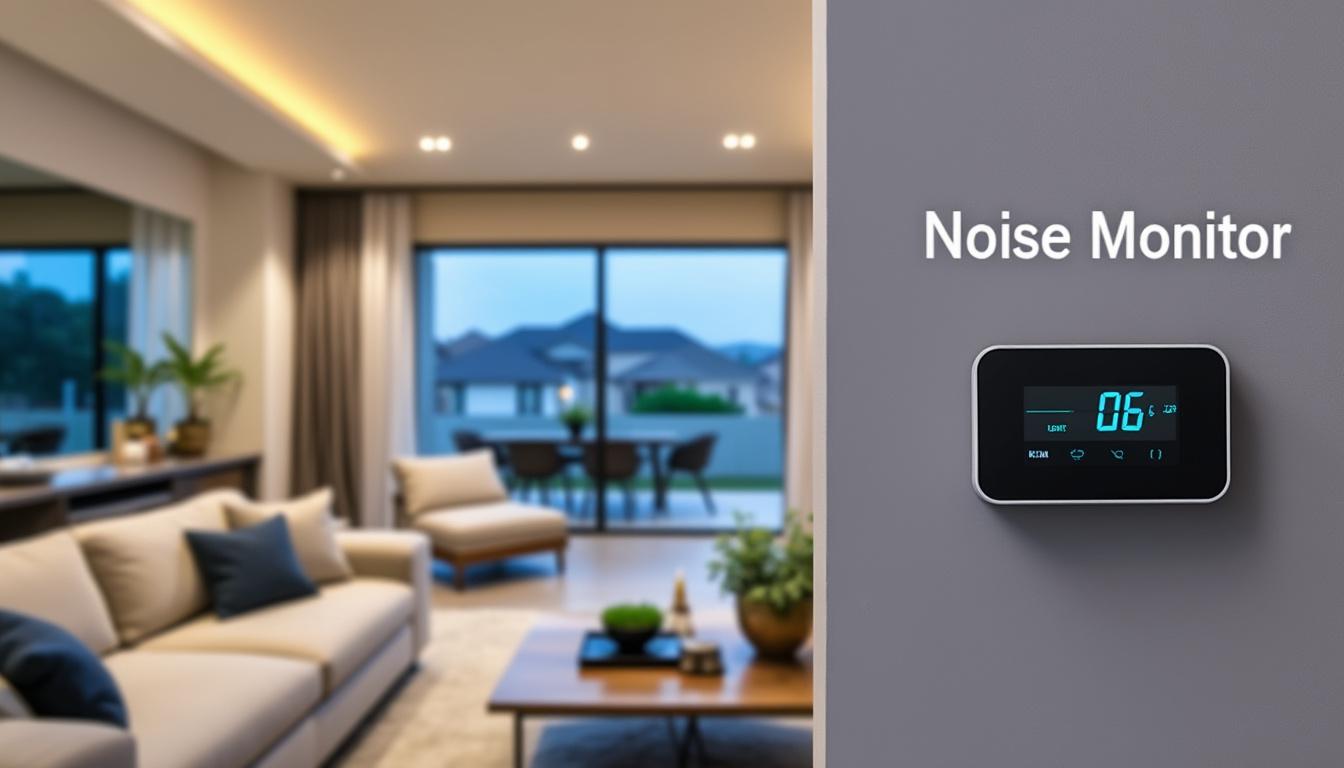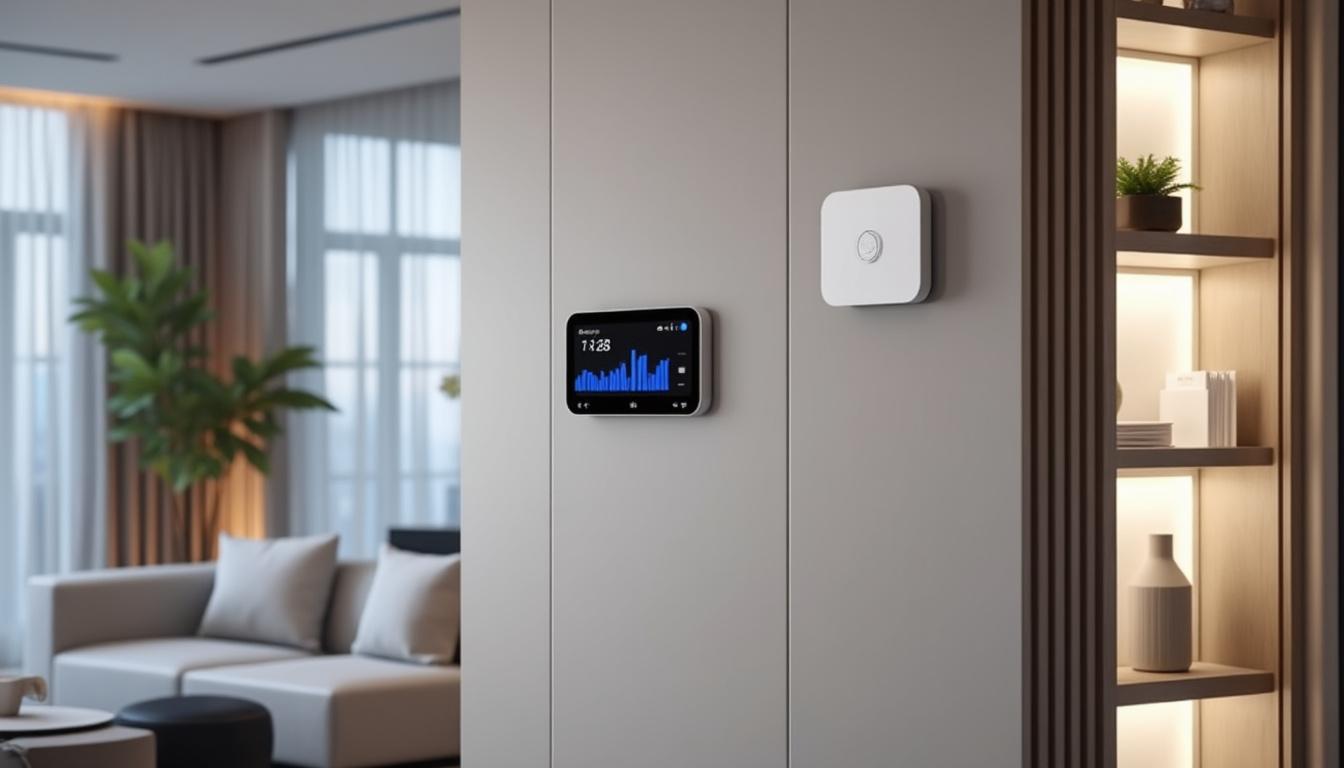The hospitality industry is continually evolving, and Airbnb is at the forefront of introducing innovative solutions to enhance the guest experience while ensuring that communities remain peaceful. Recently, Airbnb has made headlines with the launch of its new anti-party technology aimed at tackling noisy gatherings in short-term rentals. This initiative comes in response to concerns from hosts and neighborhoods about disruptive events that can arise during holiday seasons, particularly during the summer months. The implementation of this technology not only demonstrates Airbnb’s commitment to responsible hosting but also reflects broader industry trends toward using technology for better property and community management.
The Importance of Managing Noise in Vacation Rentals
In the world of vacation rentals, managing noise levels is crucial for maintaining good relationships with neighbors and local communities. Disruptive parties can lead to a multitude of issues, including complaints from residents, damage to properties, and a tarnished reputation for hosts. Furthermore, excessive noise can attract local authorities, potentially resulting in fines or even bans on short-term rentals in some regions. Below are several reasons why noise management is essential:
- Community Relations: Creating a harmonious relationship with neighbors is vital for long-term success in the rental industry.
- Brand Reputation: Positive reviews and a good reputation can significantly impact a host’s ability to secure future bookings.
- Compliance with Regulations: Many cities have regulations in place regarding noise levels in rental properties, and compliance is critical for avoiding penalties.
- Safety and Security: Loud gatherings can sometimes lead to unruly behavior, posing risks to both guests and locals.
By recognizing the significance of these factors, the implementation of precise noise monitoring systems becomes a priority for many hosts. Companies such as NoiseAware provide technology that facilitates monitoring noise levels in real-time, allowing hosts to act proactively when issues arise.

Overview of Airbnb’s Anti-Party Technology
Airbnb’s latest innovation utilizes machine learning algorithms designed to analyze booking patterns and data. This technology identifies potential red flags, such as guests who may have a higher likelihood of hosting disruptive gatherings. By employing these advanced tools, Airbnb aims to proactively prevent situations that could escalate into larger issues.
The company has systematically rolled out this technology across the United States and Puerto Rico, particularly ahead of peak holiday periods like Memorial Day and the Fourth of July. This initiative is a part of Airbnb’s broader strategy to ensure responsible travel and enhance the overall experience for both guests and hosts.
How It Works
At the core of this technology is a robust algorithm that evaluates various factors when a booking is made. Some of the criteria considered include:
- Booking Patterns: Examining the history of the guest to see if they have previously engaged in disruptive behavior.
- Reservation Timing: Last-minute bookings or those extending over holidays may trigger alerts for potential issues.
- Guest Reviews: Analyzing past reviews can offer insight into a guest’s behavior and their likelihood of hosting parties.
By assessing these factors, Airbnb can successfully block high-risk reservations, significantly reducing the complaints and concerns from neighbors and enhancing community trust.
The Impact of Noise Monitoring on Short-Term Rentals
The integration of noise monitoring systems signifies a shift in the short-term rental sector towards a more responsible approach to hosting. This transformation provides numerous benefits, touching upon various aspects of the rental experience. As hosts in the vacation rental market now face increasing scrutiny regarding community impact, noise monitoring technology plays an integral role in maintaining a peaceful living environment, allowing both guests and residents to coexist harmoniously.
Enhanced Guest Experience
With the implementation of innovative noise monitoring technology, guests benefit significantly from a peaceful environment. Many travelers prefer vacation rentals due to the promise of relaxation and comfort, free from the disturbances often associated with typical hotel accommodations. The focus on maintaining lower noise levels creates a positive atmosphere conducive to restful stays.
Some advantages of enhanced guest experiences include:
- Comfortable Stays: Less noise means guests can enjoy their vacations without interruptions.
- Positive Interactions: Guests are likely to have more favorable interactions with neighbors when noise levels are managed effectively.
- Increased Retention: Satisfied guests are more likely to become repeat visitors or recommend properties to friends and family.
In addition, the assurance that hosts are taking noise management seriously can encourage guests to leave glowing reviews, further boosting property visibility.
Building Community Trust
Another significant impact of implementing noise monitoring technology is the reinforcement of trust within communities. As hosts make an effort to limit disruptions, they contribute positively to the surrounding neighborhood. This commitment encourages a cooperative relationship between hosts, guests, and local residents.
Communities may witness:
- Improved Neighbor Relations: Efforts to minimize noise can lead to better relationships between hosts and residents.
- Support from Local Authorities: When communities see rental hosts proactively managing noise, they are less likely to push for restrictive regulations against short-term rentals.
- Enhanced Local Economy: A thriving rental market can boost local businesses, benefiting the overall economy.
| Benefits of Noise Monitoring | Impact on Guests | Impact on Community |
|---|---|---|
| Increased comfort and satisfaction | Better vacation experiences | Stronger community relationships |
| Higher booking rates | Positive reviews and repeat visitors | Economic benefits for local businesses |
| Proactive management of disturbances | Peaceful environment for families | Support for regulatory compliance |
Challenges and Considerations in Implementing Anti-Party Technology
Despite the advantages that noise monitoring and anti-party technology bring, there are still challenges that both Airbnb and hosts must navigate. It’s essential to consider the implications of such technologies while ensuring convenience for guests and minimal intrusion into their holiday experience.
Privacy Concerns
One of the most pressing issues surrounding noise monitoring technology is privacy. Guests may have concerns regarding the extent to which their activities are being monitored. Transparency is key in addressing these apprehensions; hosts need to communicate clearly with guests about how these systems work and what data they collect.
Some steps to enhance transparency include:
- Clear Communication: Providing detailed descriptions of the noise monitoring setup within property listings.
- Data Usage Policies: Outlining how data is handled, stored, and deleted to protect guest privacy.
- Guest Consent: Obtaining explicit permission from guests before implementing monitoring systems.
Implementation Costs
The initial costs of installing and maintaining noise monitoring systems may discourage some hosts, especially those managing single properties. Investing in technology requires careful financial consideration; however, the long-term benefits often outweigh the starting expenses. Rentals in competitive markets need to adapt and incorporate technology to thrive.
Available options for hosts include:
- Comparative Market Analysis: Analyzing local rental markets to identify potential returns on technology investments.
- Scaling Solutions: Considering cloud-based systems or partnerships with tech providers to distribute costs.
- Grant Opportunities: Seeking grants or financial assistance for small business enhancements in their local region.

The Future of Hospitality Technology and Noise Management
As technology continues to evolve, the hospitality sector is set for a transformation that includes more advanced methods of managing noise and ensuring guest satisfaction. Airbnb’s commitment to implementing anti-party technology signifies a broader move towards responsible hosting practices which resonate with consumers as society increasingly values sustainability and community impact.
Emerging Innovations
The future of hospitality technology may see even more comprehensive solutions for noise management, including:
- Integration with Smart Home Devices: Utilizing IoT devices to manage noise levels automatically.
- Enhanced AI Capabilities: Developing predictive algorithms for potential disturbances based on real-time data analytics.
- Stronger Community Engagement Tools: Creating platforms for direct communication between hosts and local residents to address concerns collaboratively.
Global Trends
Worldwide, rental platforms such as HomeAway, VRBO, and Booking.com are observing a shift toward technological adoption as part of their service offerings. Monitoring and managing noise is just one piece of a larger puzzle as the industry adapts to modern travel expectations. The ongoing emphasis on tech-driven solutions empowers both hosts and guests to experience smoother interactions and maintain positive community ties without compromising the vacation experience.
| Future Trends in Hospitality Technology | Potential Benefits |
|---|---|
| Integration of smart home devices | Automated noise management |
| Enhanced AI capabilities | Proactive disturbance prevention |
| Community engagement platforms | Improved host-neighbor communication |
